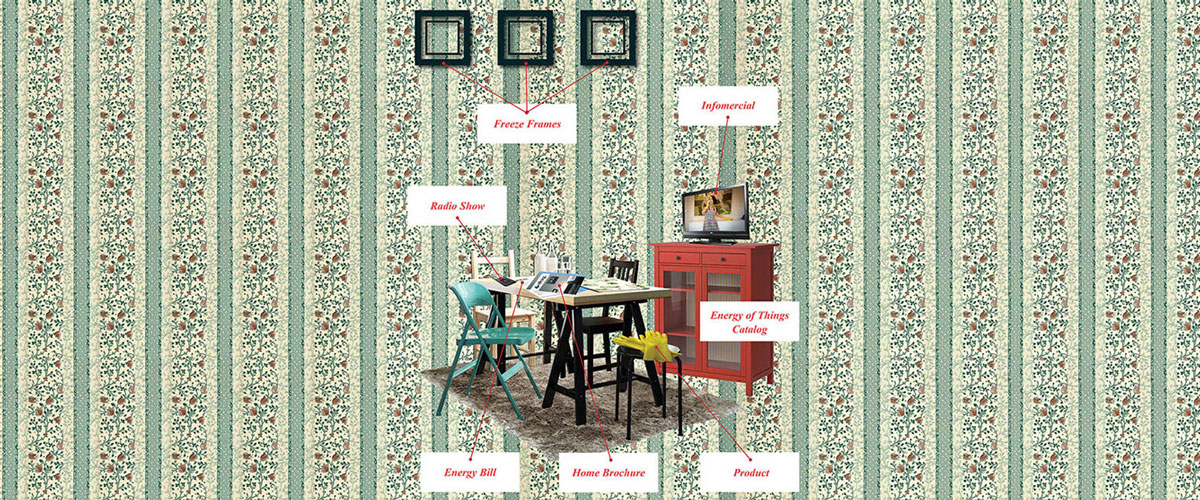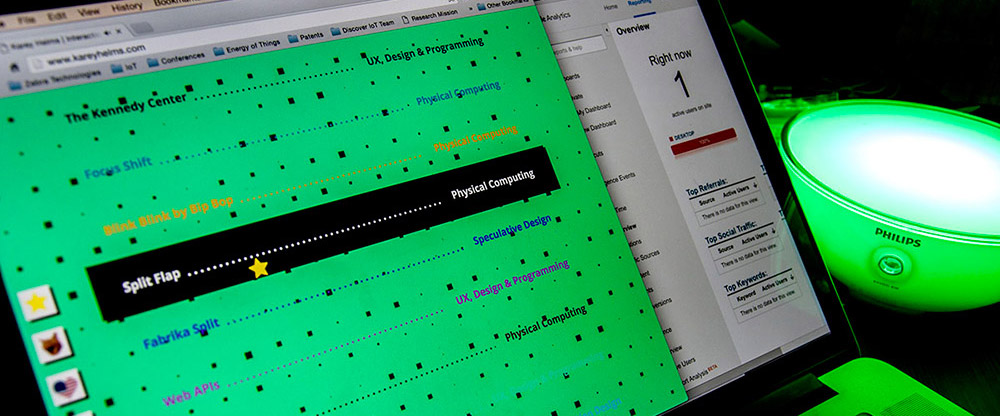Very excited that I’ll be attending two workshops at CHI’17 in Denver! Below are links to the workshop descriptions and my position papers.
Workshop 1 – Making Home: Asserting Agency in the Age of IoT (description)

The Family Circuit: A New Narrative of American Domesticity (position paper PDF)
As the world endures and approaches a string of energy crises, The Family Circuit: A New Narrative of American Domesticity, aims to critique and challenge society’s relationship with energy by provoking individuals to examine their current habits of energy consumption, consider the future implications of these actions, and question their willingness to make sacrifices for a cleaner environment. This is accomplished through the development of a fictional near future society in which individuals are required to produce all the electrical energy that they need or desire to consume. Within the daily narrative of a fictional family of five, the events of their domestic lives have been extrapolated to create a liminal world where mundane, yet peculiar diegetic prototypes create tense situations, uncomfortable behaviors, and unforeseen consequences. The project raises questions regarding local to global contextual considerations, behavioral change within the home diegesis, and hyper-localized hacking.
Workshop 2 – Designing the Social Internet of Things (description)

Phygital Party Mode: A Relationship with Relationships (position paper PDF)
In this position paper, I present an exploratory autobiographical design project, Phygital Party Mode, in which visitors’ interactions with my website remotely control an Internet of Things light within my apartment. I reflect upon my relationship with the project as a ‘thing’ and explore the themes of active versus reactive agency, conditional relationships and designing the behaviors of objects. Finally, I end with discussion questions that address a transfer of agency due the democratization of the Internet of Things, the transformation of relationships with and because of connected ‘things,’ and the empowerment of people over objects.